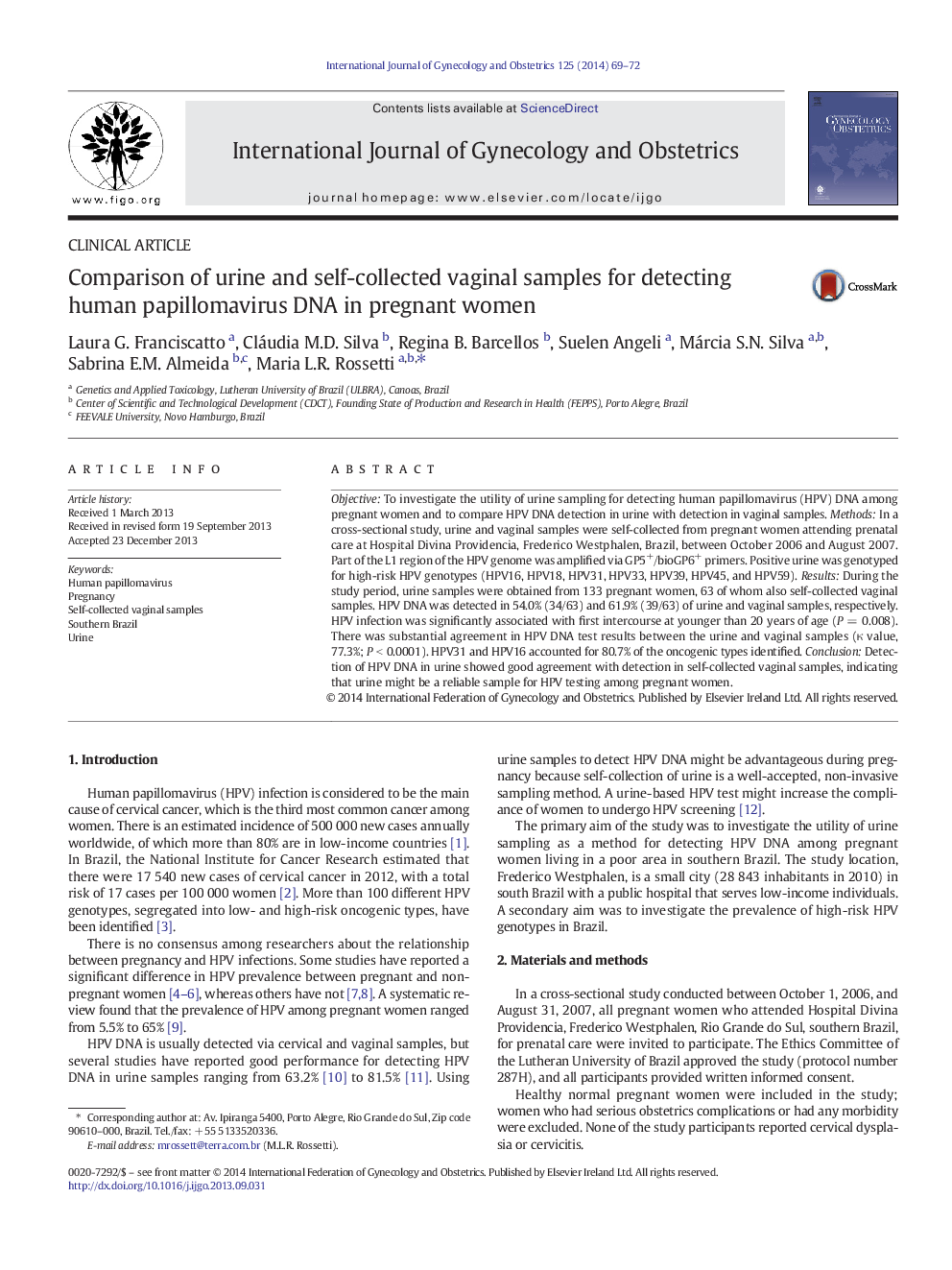| Article ID | Journal | Published Year | Pages | File Type |
|---|---|---|---|---|
| 3948657 | International Journal of Gynecology & Obstetrics | 2014 | 4 Pages |
ObjectiveTo investigate the utility of urine sampling for detecting human papillomavirus (HPV) DNA among pregnant women and to compare HPV DNA detection in urine with detection in vaginal samples.MethodsIn a cross-sectional study, urine and vaginal samples were self-collected from pregnant women attending prenatal care at Hospital Divina Providencia, Frederico Westphalen, Brazil, between October 2006 and August 2007. Part of the L1 region of the HPV genome was amplified via GP5+/bioGP6+ primers. Positive urine was genotyped for high-risk HPV genotypes (HPV16, HPV18, HPV31, HPV33, HPV39, HPV45, and HPV59).ResultsDuring the study period, urine samples were obtained from 133 pregnant women, 63 of whom also self-collected vaginal samples. HPV DNA was detected in 54.0% (34/63) and 61.9% (39/63) of urine and vaginal samples, respectively. HPV infection was significantly associated with first intercourse at younger than 20 years of age (P = 0.008). There was substantial agreement in HPV DNA test results between the urine and vaginal samples (κ value, 77.3%; P < 0.0001). HPV31 and HPV16 accounted for 80.7% of the oncogenic types identified.ConclusionDetection of HPV DNA in urine showed good agreement with detection in self-collected vaginal samples, indicating that urine might be a reliable sample for HPV testing among pregnant women.
